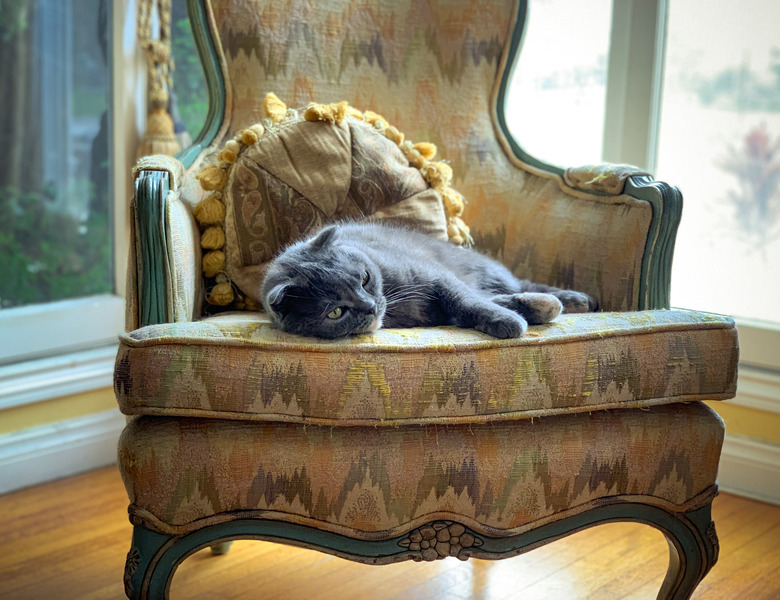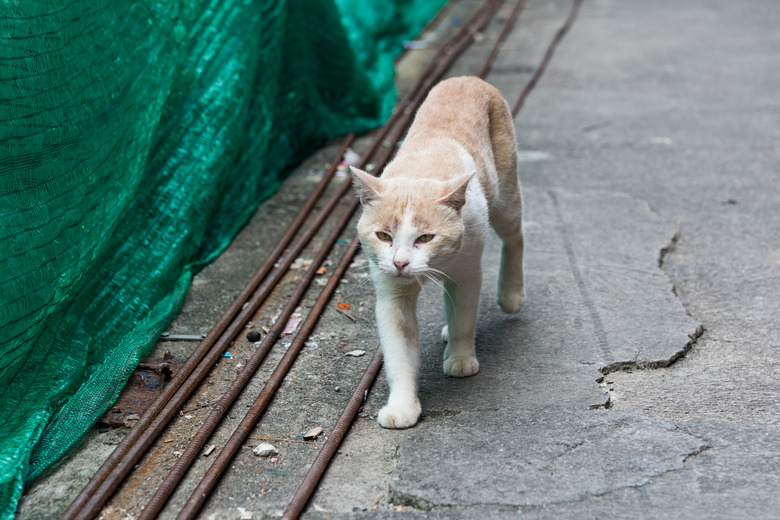What Is The Life Expectancy Of A Cat?
On average, a feline companion might live into their teens, but some cats have lived into their 20s and beyond. In fact, Creme Puff, who died at 38 years of age, is known as the oldest cat. Every pet parent wants the very best for their cats, and wants them to live as long as possible. But the length of a cat's life depends on several factors, such as genetics, environment, diet, veterinary care, and more. So, while there are things that you can't control, there are also things you can do to help your cat live a long, happy, and healthy life.
Average cat lifespan
Average cat lifespan
The average life expectancy for a domestic cat is around 15 years. Of course, some kitties will have shorter lives while others will live well into old age. As a pet parent, it's wise to learn what they need to thrive.
Indoor cat versus outdoor cat lifespan
One factor that may affect a cat's life expectancy is whether they live indoors or outside. Indoor cats tend to live longer because they aren't exposed to a variety of risks. While an indoor cat might live more than 10 years, an outdoor cat might only live up to 5 years, on average. In other words, a cat who lives indoors might live a decade longer than one who lives outdoors.
Outdoor cats face many challenges that indoor kitties don't need to worry about. For example, they have to always be on the lookout for other animals, including other cats, that might harm them. Some can become victims of abuse at the hands of humans. Also, there's the risk of being hit by a vehicle, as well as the threat of toxins, internal and external parasites like roundworms and fleas, and diseases that could be spread by other cats or wildlife. Plus, there's the chance a cat could get lost or stolen. The Humane Society of the United States advises cat owners to keep their cats indoors.
If you want to give your cat the chance to experience the great outdoors, there are safe ways to do so. For instance, you can build a catio. Or you can purchase an outdoor enclosure designed for cats. You can also train your cat to sit in a stroller or walk on a leash.
Factors that affect cat lifespan
Factors that affect cat lifespan
A host of things could influence how long a cat will live, such as:
Cat diets catered to their specific needs
Feeding your cat high-quality cat food may help them live longer. Provide a species-appropriate diet, as cats are obligate carnivores, and ensure they're getting enough moisture and nutrients. Also, you might need to adjust your pet's diet for their life stage or if they're diagnosed with health issues.
Cat weight and activity levels
Helping your cat stay at a healthy weight may be beneficial when it comes to maintaining their overall wellness. Enrich your cat's environment with things like perches, trees, scratchers, and toys to keep them mentally and physically active. Basically, you want to encourage your pet to exercise by running, jumping, and pouncing.
Cat spaying and neutering
Spaying and neutering cats may help them live longer. They typically feel less of an urge to find a way out of the house to roam. Plus, the risk of some medical conditions, such as those related to the reproductive system, might be reduced or eliminated.
Cat breeds and genetics
Some cats might be more susceptible to medical issues because of their breed or genetics, and certain cat breeds tend to live longer than others. Whether you share your home with purebred cats or mixed-breed kitties, the same basic rules apply when it comes to taking care of them. You can talk to a veterinarian about your cat's needs based on their breed.
Veterinary medicine and cats
Having your cat examined by a veterinarian regularly can help alert you to health problems in their earliest stages. You can get tips on how to reduce the risk of various ailments. Plus, if issues do arise, prompt treatments may help your pet recover.
Caring for your cat as they age
Caring for your cat as they age
Here are some things you can do to support your cat's health throughout their life:
Kitten (up to 1 year old)
Have your kitten examined by a veterinarian to ensure they're healthy, receive necessary vaccinations, and be spayed or neutered. You can also discuss the best kitten food, as well as how to trim your pet's claws and brush their teeth.
Young adult cats (1 to 6 years old)
Playing with your cat doesn't stop when they outgrow the kitten stage, so continue interacting with your pet daily to encourage exercise. Also, feed your cat a high-quality diet for adults.
Mature adult cats (7 to 10 years old)
As your cat gets older, your veterinarian can check to make sure they're doing well. They might recommend a change in diet if it's necessary and can let you know if your cat is maintaining a healthy weight.
Senior cats (over 10 years old)
You might notice behavioral changes as your cat ages. Some of them are normal and expected, but if you aren't sure, consult with your veterinarian. At this stage, your pet might need a change in diet, and you might have to find new ways to encourage them to stay active. Also, symptoms of illness might arise, but your veterinarian could recommend treatments.
The bottom line
The bottom line
The average lifespan of a cat is around 15 years. Yet every pet is unique and a host of factors play a role in how long a cat will live. Take care of your cat by keeping them indoors, enriching their environment, and feeding them the highest quality food. Taking them to see a veterinarian for regular check-ups may help them live longer.


